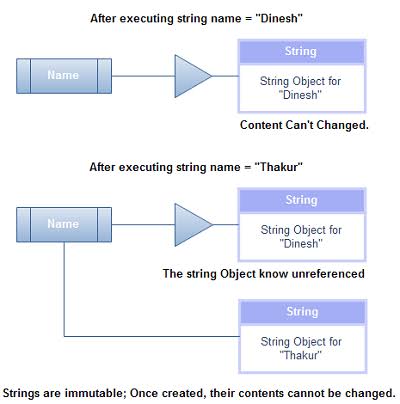Why Are Strings Immutable in Java? Comprehensive Guide for Beginners
Why Are Strings Immutable in Java? Comprehensive Guide for Beginners
Blog Article
What Is Immutable Strings and Exactly How It Works
In the world of programs, understanding the principle of immutable strings is extremely important for developing robust and safe applications. Immutable strings describe strings that can not be changed after they are produced, making sure data honesty and predictability within the code. This basic concept plays an essential duty in numerous programming languages and supplies a distinct method to taking care of data. By exploring the complexities of exactly how immutable strings operate, one can uncover a globe of advantages and opportunities that can raise the high quality and effectiveness of software program advancement.
The Fundamentals of Unalterable Strings
Immutable strings, as a basic principle in programming, are personality series that can not be altered as soon as they are created. This suggests that once a string is assigned a worth, that worth can not be modified. In languages like Python and Java, strings are immutable objects, bring about various effects in regards to memory administration and data stability.
Among the vital benefits of unalterable strings is that they offer a complacency in information manipulation. Considering that the content of an immutable string can not be modified, it makes sure that the original data continues to be undamaged, minimizing the risk of unintended modifications during program execution (Why are strings immutable in Java?). This residential or commercial property additionally simplifies debugging procedures, as designers can trust that when a string is defined, its value will certainly not be unintentionally altered
In addition, immutable strings facilitate efficient memory usage. When a new string is developed based upon an existing one, as opposed to customizing the original string, the new worth is saved separately. This method boosts efficiency by reducing memory fragmentation and streamlining memory appropriation procedures. Generally, recognizing the fundamentals of unalterable strings is important for grasping shows principles and maximizing code efficiency.
Advantages of Immutable Strings
Building upon the safety and performance advantages of unalterable strings, their benefits encompass improving code reliability and streamlining simultaneous shows tasks. By being immutable, strings can not be modified after development, which eliminates the danger of unexpected changes in the data they store. This integral immutability guarantees that once a string is developed, its worth remains consistent throughout the program's execution, minimizing the opportunities of bugs brought on by unforeseen modifications.
Additionally, unalterable strings add to code dependability by making it less complicated to reason about the state of a program. Since strings can not be transformed, designers can trust that a string will certainly constantly hold the same value, simplifying debugging and upkeep initiatives. This predictability brings about much more stable and reputable codebases.

Execution in Programming Languages
Within different programming languages, the unification of unalterable strings is a basic aspect that influences how information is dealt with and controlled within code frameworks. The implementation of unalterable strings varies across different programs languages, with each language supplying its own systems to sustain this principle.

On the other hand, languages like C and C++ do not have integrated support for unalterable strings. Developers in these languages should manually carry out immutability by implementing guidelines within their code to protect against direct modifications to string things.
Finest Practices for Functioning With Unalterable Strings
When handling unalterable strings in programs languages like Java and Python, adhering to finest techniques makes certain protected and reliable data adjustment. Among the vital ideal techniques is to use StringBuilder or StringBuffer as opposed to directly controling strings, especially when dealing with substantial concatenation procedures. These courses provide mutable options for string adjustment, helping to stay clear of unnecessary memory allotments and enhancing efficiency.
An additional finest method is to make use of string interpolation or format works provided by the language rather of hand-operated concatenation. This not only improves readability yet additionally help in protecting against typical pitfalls such as unintended string modifications. In addition, when working with delicate data such as passwords or API keys, it is essential to prevent storing them as simple text in immutable strings. Using safe and secure storage mechanisms like char ranges or specialized collections for dealing with sensitive info helps minimize safety threats related to immutable strings.
Real-world Applications and Instances
Checking out practical executions of immutable strings in numerous sectors discloses their significant effect on information integrity and system integrity. In the health care field, immutable strings play a crucial function in guaranteeing the security and confidentiality of individual data. By stopping unauthorized adjustments to sensitive info such as clinical records and prescriptions, immutable strings aid preserve conformity with rigorous personal privacy regulations like HIPAA.
Economic establishments likewise take advantage of the unalterable nature of strings to enhance the safety of client information and purchase records. Immutable strings aid stop fraud and unauthorized changes to financial details, offering a durable defense versus cyber dangers and ensuring the depend on and self-confidence of clients.

Verdict
Best methods for functioning with immutable strings consist of avoiding straight alterations and using methods that return brand-new string objects. Real-world applications of unalterable strings include information security, caching, and string adjustment jobs.
Unalterable strings refer to strings that can not be altered after they are created, Get the facts ensuring information stability and predictability within the code. When a brand-new string is created based on an existing one, rather than modifying the original string, the brand-new worth is kept separately.In languages like Java and Python, strings are unalterable by default, indicating that once a string object is created, its worth can not be altered - Why are strings immutable in Java?. Best methods for functioning with unalterable strings consist of avoiding straight alterations and making use of methods that return brand-new string things. Real-world applications of unalterable strings include data encryption, caching, and string manipulation jobs
Report this page